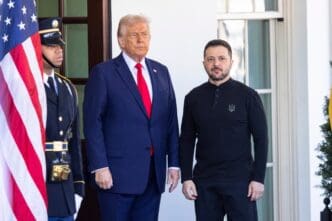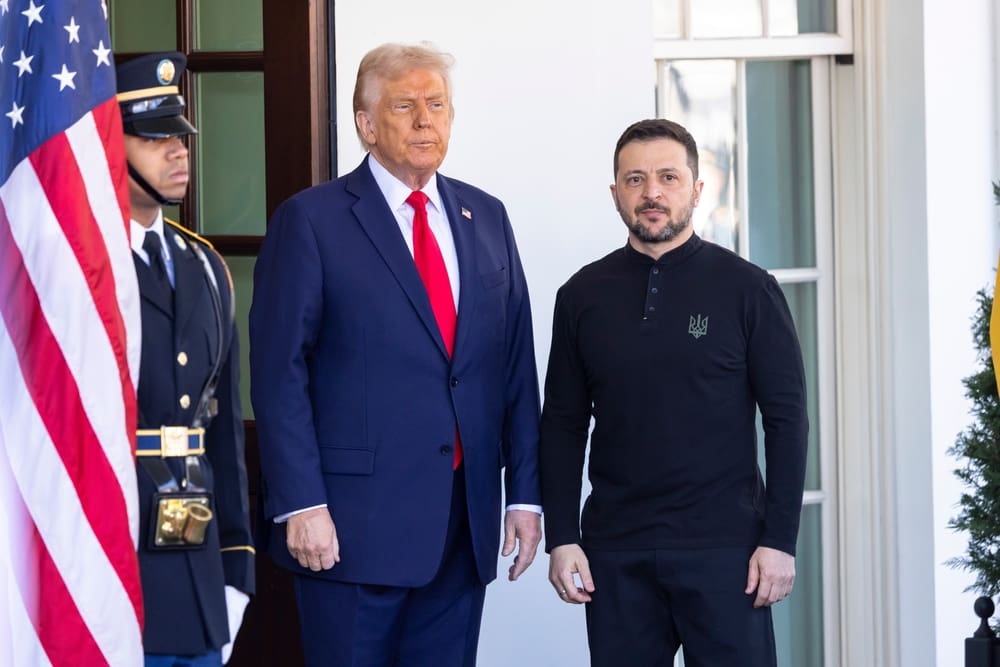Executive Summary
The Story So Far
Why This Matters
Who Thinks What?
Ukrainian President Volodymyr Zelenskiy expressed on Tuesday his belief that President Donald Trump possesses the influence to alter Chinese President Xi Jinping’s position on Russia’s ongoing war in Ukraine. Zelenskiy’s comments, made to Fox News following a meeting with Trump at the United Nations General Assembly in New York, suggested that China currently does not appear to prioritize an end to the conflict.
China’s Stance and International Pressure
Zelenskiy articulated his view that it is not currently in China’s interest to refrain from supporting Russia, highlighting a perceived lack of desire from Beijing to conclude the war. This perspective comes amid continued international scrutiny of China’s economic ties with Moscow since the invasion.
The United States has previously voiced concerns regarding China and India’s continued purchases of Russian oil, which Washington views as contributing to Moscow’s war efforts. Sources indicated last week that Trump had privately urged European Union officials to impose 100% tariffs on both China and India as a deterrent against these energy transactions.
India’s Alignment and Diplomatic Efforts
Despite U.S. frustrations over energy purchases, Zelenskiy conveyed a more optimistic outlook regarding India, stating he believes the nation is “mostly” aligned with Ukraine. He emphasized the importance of preventing India from distancing itself from Western allies and suggested that Trump and European partners would work to foster a stronger relationship with New Delhi.
Zelenskiy noted the need to ensure India maintains its current stance on the conflict, particularly concerning its energy sector. He suggested that collaborative efforts could prevent India from altering its relationship with Russian energy supplies.
Beijing’s Response and Peace Initiatives
In response to international scrutiny, a spokesperson for the Chinese embassy, Liu Pengyu, issued a statement on Tuesday denying that Beijing has exploited the conflict for financial gain. Pengyu asserted that China has maintained an “objective and just stance” since the crisis began, consistently promoting peace and dialogue.
The spokesperson further outlined China’s call for all parties to adhere to three core principles: “no expansion of the battlefield, no escalation of fighting, and no fanning of the flames.” This stance aims to de-escalate the situation and create conditions conducive to a political settlement.
Trump’s Frustration and Unexpected Support
Trump has openly expressed frustration over the protracted conflict, which has continued for more than three years since Russian forces invaded Ukraine. On Tuesday, he conveyed a belief that Kyiv, with European support, could reclaim all its territory from Moscow.
In a post on Truth Social, Trump criticized Russia’s military performance, stating that the war “should have taken a Real Military Power less than a week to win.” He also suggested that Russian President Vladimir Putin and Russia were facing “big economic trouble.” Zelenskiy described these comments as surprising and a positive indication of sustained U.S. support for Ukraine until the conflict’s resolution.
Outlook on Geopolitical Dynamics
The interplay between Ukraine’s diplomatic outreach, the United States’ strategic concerns regarding energy trade, and China’s asserted neutrality underscores the complex geopolitical dynamics surrounding the conflict. Zelenskiy’s efforts to sway China’s influence, coupled with Trump’s public commentary, highlight ongoing attempts to shape international responses to the war.








